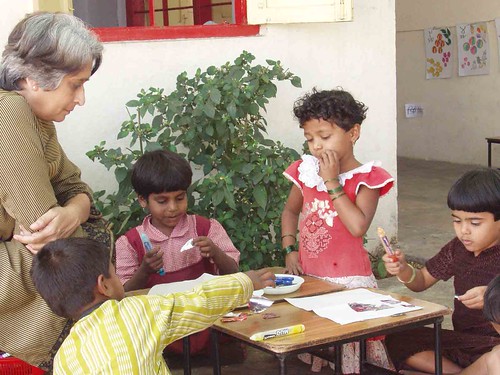
When Apli Shala (AS) was started, it was observed that the older children were often accompanied by their younger siblings. Because in most of the houses both the parents had to work to make ends meet, the elder children had the responsibility to take care of the young children. This situation gave rise to the idea of opening a balwadi in AS.
Today the AS Balwadi has three classes for children in age three to six. They have roughly 100 children. The children come primarily from Mangalwar Peth- the dalit area of Phaltan and Qureshinagar where the Muslim butcher population of Phaltan resides. The Qureshinagar children unfortunately drop out after a few months to join the madrasa or the recently opened, unrecognized Urdu medium school. The main reason behind this is that the Muslim children don’t feel comfortable in a fully Marathi environment. To address this problem Shraddha Sangle, who was teaching the oldest group of children decided to use bilingual instruction to bridge the cultural and linguistic divide, encouraging children of both communities to use both languages. The project, for which she was given a CLLC Teacher Fellowship, was highly successful.
Balwadis of both KNB and Apli shala are run according to the Early Childhood Education Philosophy.
After the last year of balwadi, children go the first standard of the municipal school. Three seats in the first standard of KNB are reserved for children from AS balwadi. Children continue to attend the supplementary classes and the Khelghar in Apli Shala after leaving balwadi.
